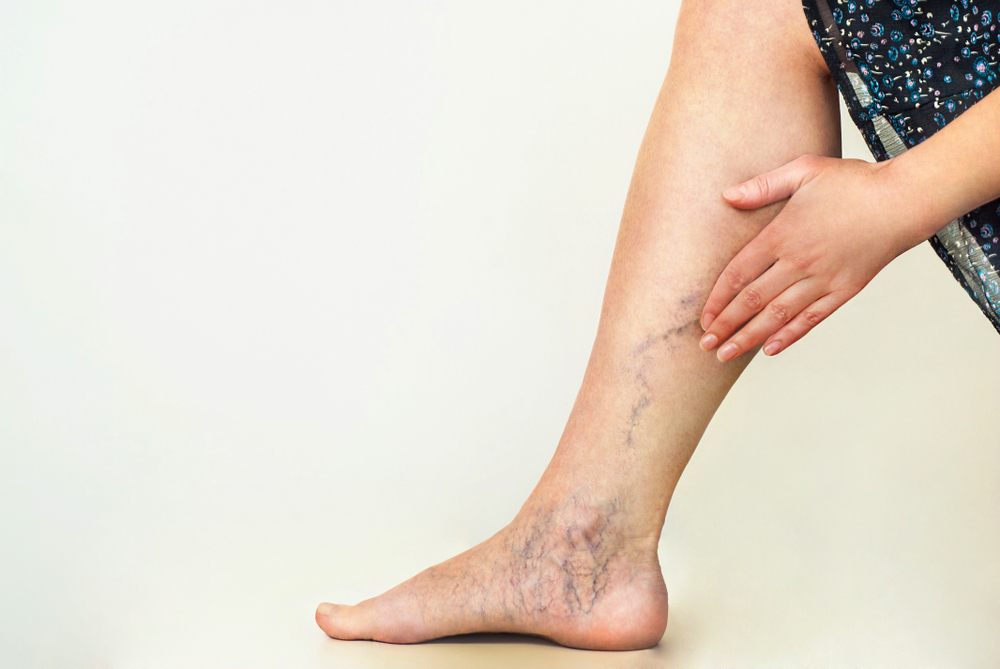How to Prevent Varicose Veins: Lifestyle Changes and Self-Care Tips

The rise of mental health disorders has become a growing concern worldwide, with millions suffering from anxiety, depression, and other mental health issues. According to recent statistics from the World Health Organization, 1 in 4 people will be affected by mental or neurological disorders at some point in their lives.
Moreover, the COVID-19 pandemic has further exacerbated the mental health crisis, with increased stress levels, isolation, and uncertainty affecting people's mental well-being. It's more important than ever to prioritize mental health and seek the necessary support and resources to address these challenges. In this article, we'll explore the impact of mental health on individuals and society and provide practical tips for maintaining good mental health and how to prevent varicose veins.
Symptoms of Varicose Veins
- Bulging veins: Veins that are swollen and twisted, appearing blue or purple in colour.
- Pain or discomfort: Aching, throbbing, or a heavy feeling in the legs, particularly after standing or sitting for a long time.
- Itching or burning: Skin around the affected area may feel itchy or burning.
- Swelling: Feet, ankles, and lower legs may swell, particularly after prolonged standing.
- Muscle cramping: A feeling of cramping or tightness in the legs, particularly at night.
- Skin changes: Skin around the affected area may become discoloured or thickened.
Lifestyle Changes to Prevent Varicose Veins
Varicose vein are a common problem affecting many people, particularly those who are older or spend a lot of time standing or sitting. Fortunately, laser treatment for varicose veins are changing lives however there are many lifestyle changes that you can make to help prevent the development of varicose veins.
- Regular Exercise: Exercise is one of the best things you can do to improve your overall health and prevent varicose veins. Exercise improves circulation, strengthens the muscles in your legs, and helps maintain a healthy weight. Aim for at least 30 minutes of moderate activities, such as walking, cycling and swimming, most days of the week.
- Healthy Diet: A healthy diet rich in fibre and low in salt and fat can help keep your veins healthy. Eating plenty of fruits, vegetables, and whole grains can improve your overall health and prevent obesity, which is a risk factor for varicose veins.
- Maintaining a Healthy Weight: Maintaining a healthy weight prevents varicose veins. Excess weight can put extra pressure on your veins, which can lead to varicose veins. Losing weight through diet and exercise can help reduce your risk of developing varicose veins.
- Avoiding Prolonged Sitting or Standing: Prolonged periods of sitting or standing can put pressure on your veins and contribute to the development of varicose veins. If you have a job that requires you to sit or stand for long periods, take frequent breaks and move around.
- Elevating Your Legs: Elevating your legs can help improve circulation and reduce the pressure on your veins. Try to elevate your legs above your heart for at least 15 minutes several times a day.
- Wearing Loose Clothing: Tight clothing, such as tight jeans or leggings, can restrict blood flow and contribute to the development of varicose vein. Opt for loose-fitting clothing that doesn't constrict your legs.
Self-Care Tips for Managing Varicose Veins
Here are six self-care tips for managing varicose vein:
- Compression stockings: Compression stockings are specially designed stockings that help improve blood flow and reduce swelling in the legs. They apply pressure to the legs, which helps prevent blood from pooling in the veins. You can buy compression stocking at the most drugstores or online.
- Proper footwear: Wearing shoes with good support can help improve circulation and prevent varicose veins from getting worse. Avoid high heels and opt for shoes that have low heel and good arch support.
- Avoid high heels: High heels can put extra pressure in your veins and make varicose cain worse. If you wear high heels, limit the duration you spend in them and switch to flats and platform heels whenever possible.
- Cold compress: Applying a cold compress to your legs can help reduce swelling and discomfort. Simply wrap a cold pack or bag of frozen vegetables in a towel and apply in to your legs for 15-20 minutes at a time.
- Warm water soak: Soaking your legs in warm water can help improve circulation and reduce swelling. Fill a basin with warm water and soak your legs for 15-20 minutes at a time.
- Massage: Gentle massage can help improve circulation and reduce swelling in the legs. Use a circular motion to massage your legs, starting at the ankle and working your way up towards the thigh.
When to Seek Medical Help for Varicose Veins?
While lifestyle changes and self-care tips can be effective in managing causes varicose vein, there are certain symptoms that may indicate the need for medical attention. Here are some varicose vein symptoms to watch out for:
- Pain or discomfort in the legs, especially after prolonged sitting and standing.
- Swelling or inflammation in the legs
- Skin changes, such as redness, itching or discolouration.
- Ulcers or open sore on the legs
- Bleeding from the varicose veins
Conclusion
Varicose veins are a common condition that can cause discomfort and embarrassment, but they are also highly preventable and manageable through lifestyle changes and self-care tips. By making healthy choices such as exercising regularly, maintaining a healthy weight, and avoiding prolonged sitting or standing, you can reduce your risk of developing varicose veins in the first place. Knowing the reason for varicose veins
Can help you treat it in early stage. Remember to always consult with Neurology department if you have concerns or are experiencing symptoms, or specialist Dr. ABCD as they can provide further evaluation and treatment options. By taking care of your legs and making healthy choices, you can maintain good vascular health and enjoy a happy, active lifestyle.






